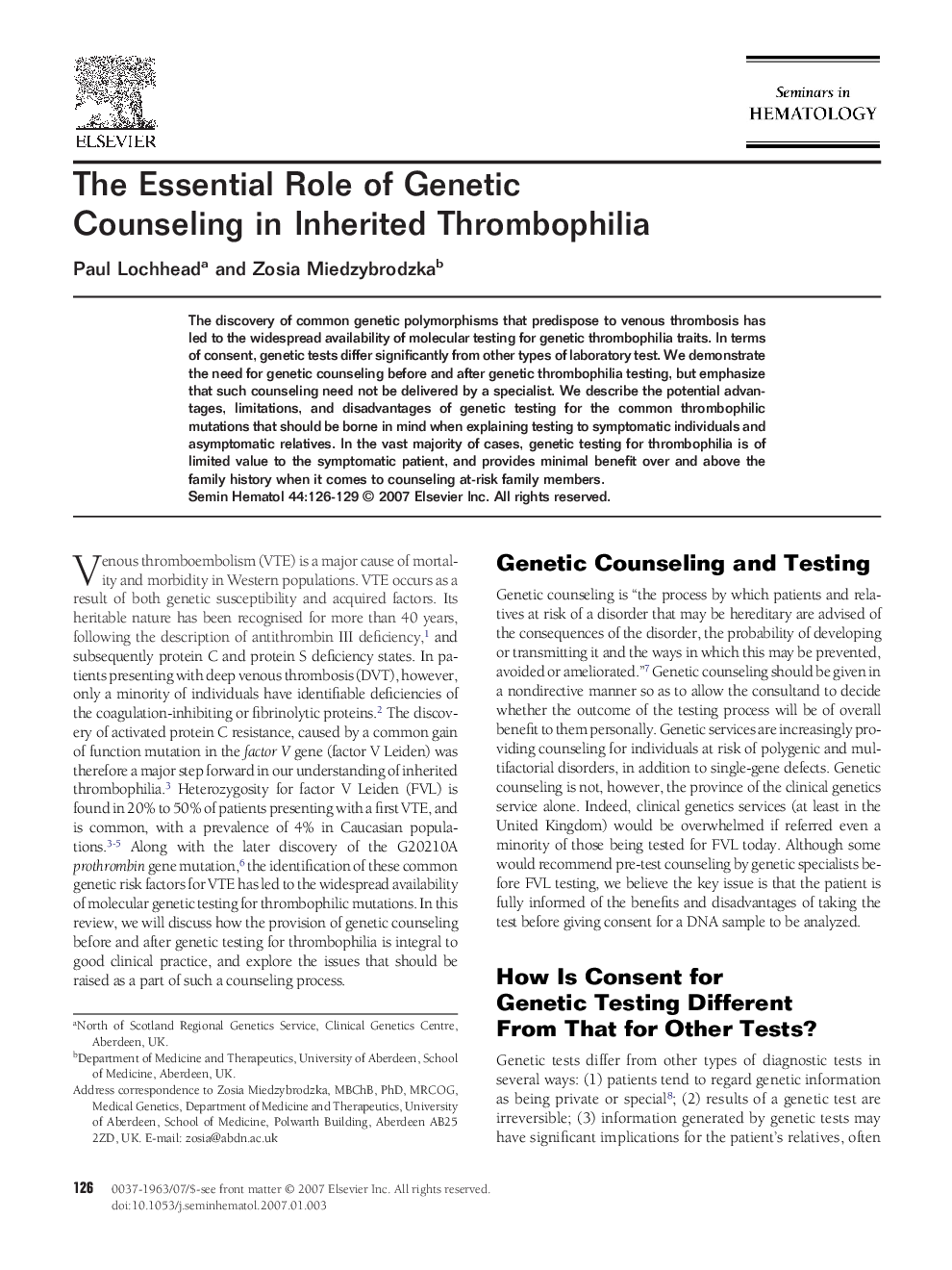| Article ID | Journal | Published Year | Pages | File Type |
|---|---|---|---|---|
| 3333936 | Seminars in Hematology | 2007 | 4 Pages |
Abstract
The discovery of common genetic polymorphisms that predispose to venous thrombosis has led to the widespread availability of molecular testing for genetic thrombophilia traits. In terms of consent, genetic tests differ significantly from other types of laboratory test. We demonstrate the need for genetic counseling before and after genetic thrombophilia testing, but emphasize that such counseling need not be delivered by a specialist. We describe the potential advantages, limitations, and disadvantages of genetic testing for the common thrombophilic mutations that should be borne in mind when explaining testing to symptomatic individuals and asymptomatic relatives. In the vast majority of cases, genetic testing for thrombophilia is of limited value to the symptomatic patient, and provides minimal benefit over and above the family history when it comes to counseling at-risk family members.
Related Topics
Health Sciences
Medicine and Dentistry
Hematology
Authors
Paul Lochhead, Zosia Miedzybrodzka,
